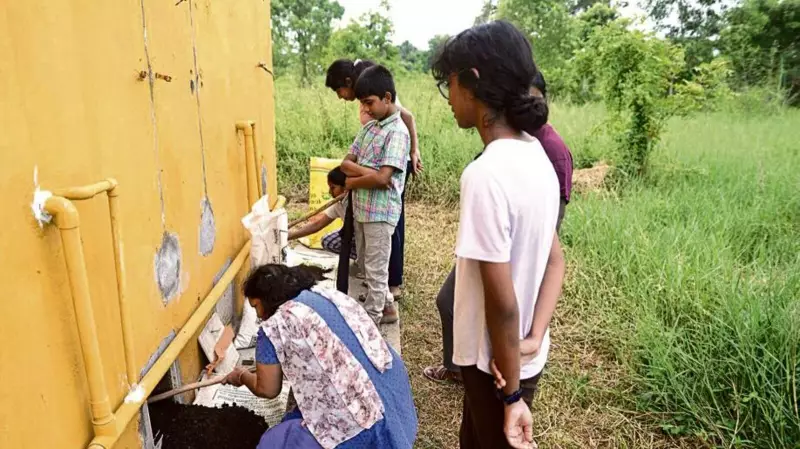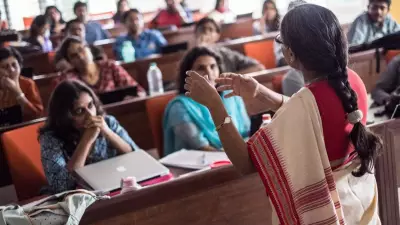
In the serene campus of Pathashaala, a Krishnamurti Foundation school nestled in Tamil Nadu's countryside, a quiet revolution is taking place—one that's transforming human waste into fertile soil and challenging conventional notions of sanitation.
The Water-Saving Sanitation Solution
While most Indian schools struggle with water scarcity and sanitation issues, Pathashaala has implemented an ingenious system of dry composting toilets that require no water for flushing. These innovative facilities not only conserve precious water resources but also convert waste into valuable compost for the school's lush gardens.
How the System Works
The dry toilet system operates on a simple yet effective principle:
- Separate collection of liquid and solid waste
- Use of sawdust and ash to aid decomposition
- Natural composting process that eliminates pathogens
- Transformation into nutrient-rich soil within months
Educational Impact Beyond Classrooms
What makes Pathashaala's initiative truly remarkable is how it integrates environmental education into daily student life. Children learn firsthand about sustainable living, waste cycles, and ecological responsibility through practical experience rather than textbook lessons alone.
"This isn't just about sanitation—it's about changing mindsets," explains a school administrator. "Our students understand that nothing in nature is waste; everything has value and purpose."
Overcoming Initial Challenges
The transition to dry toilets wasn't without its hurdles. The school community had to overcome:
- Cultural resistance to alternative sanitation methods
- Technical challenges in maintaining the system
- Educating students and staff about proper usage
- Ensuring odor-free operation
A Model for Sustainable Education
Pathashaala's success story offers valuable lessons for educational institutions across India grappling with water scarcity and environmental concerns. The school demonstrates that sustainable solutions can be practical, cost-effective, and educationally enriching when implemented with care and commitment.
The dry toilet initiative aligns perfectly with the Krishnamurti Foundation's philosophy of holistic education that nurtures both individual growth and environmental consciousness.
Broader Environmental Benefits
Beyond water conservation, the system contributes to:
- Reduced groundwater contamination
- Decreased chemical pollution from conventional treatment plants
- Lower carbon footprint through natural processing
- Creation of organic fertilizer for agricultural use
As India continues to face water stress and sanitation challenges, Pathashaala's innovative approach provides a compelling blueprint for sustainable development that other institutions might well emulate.





